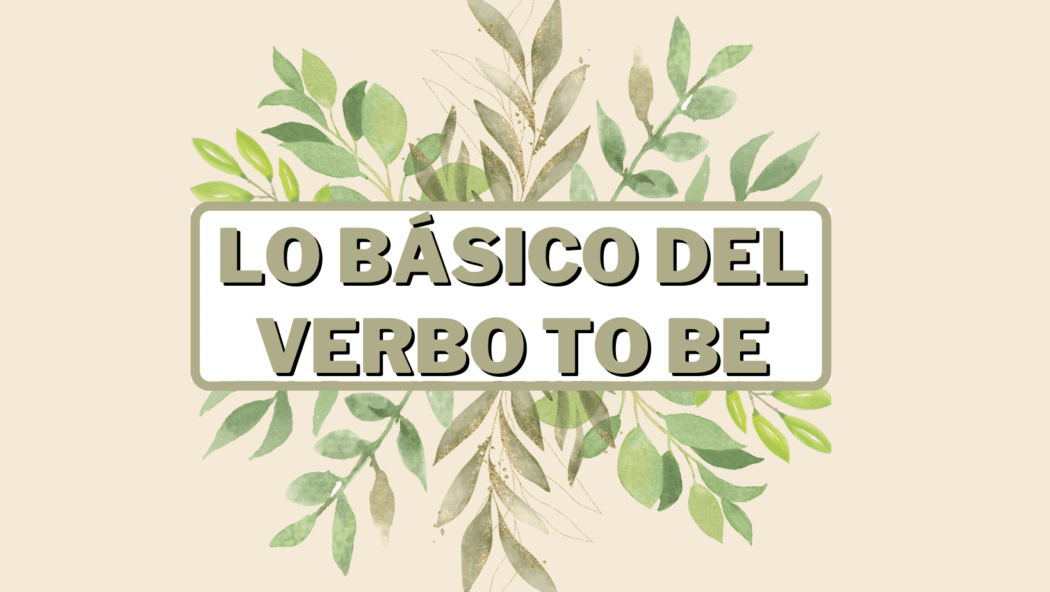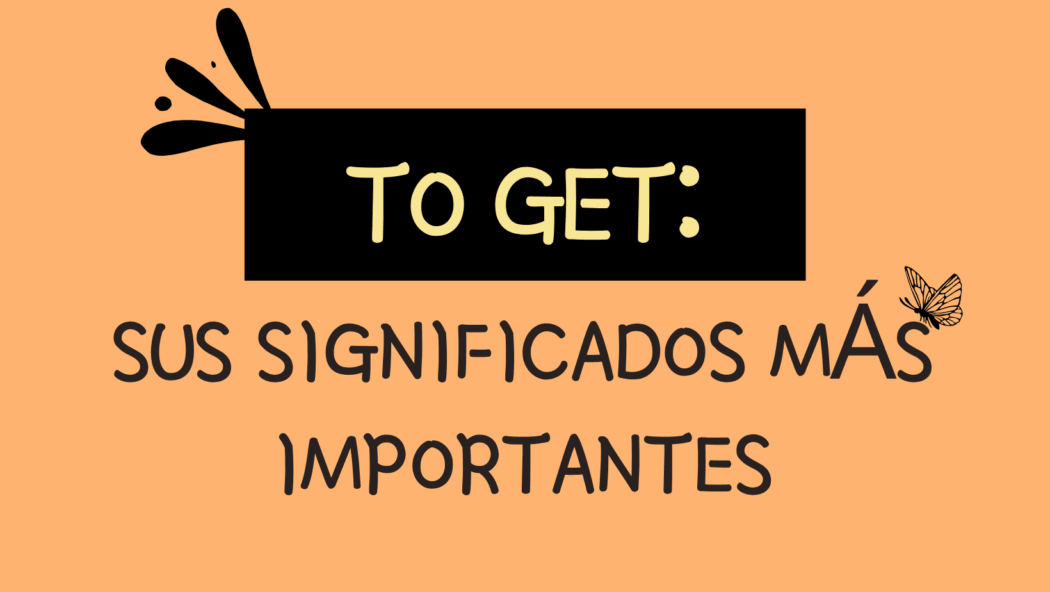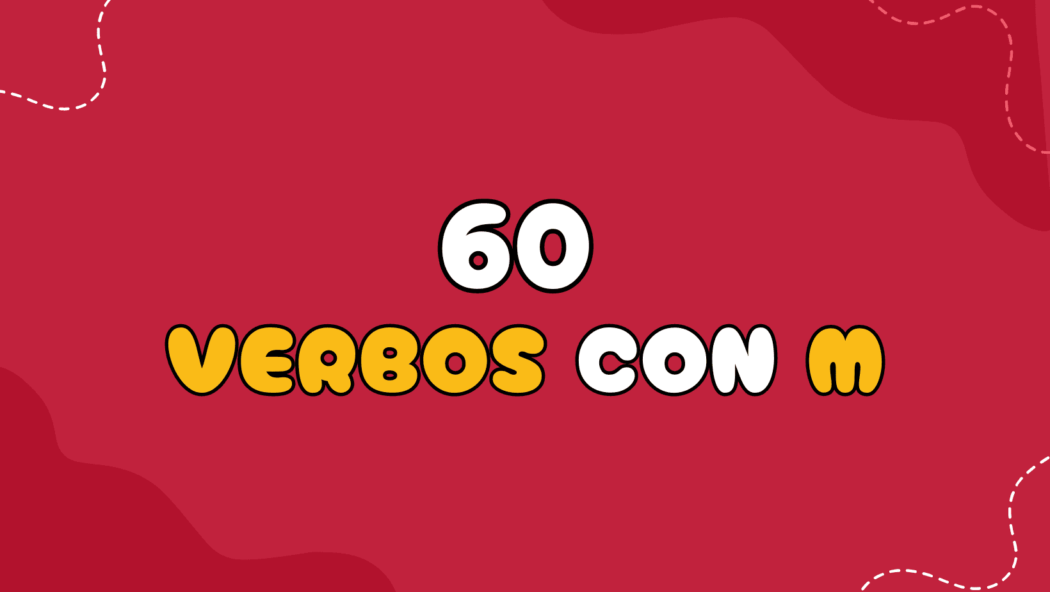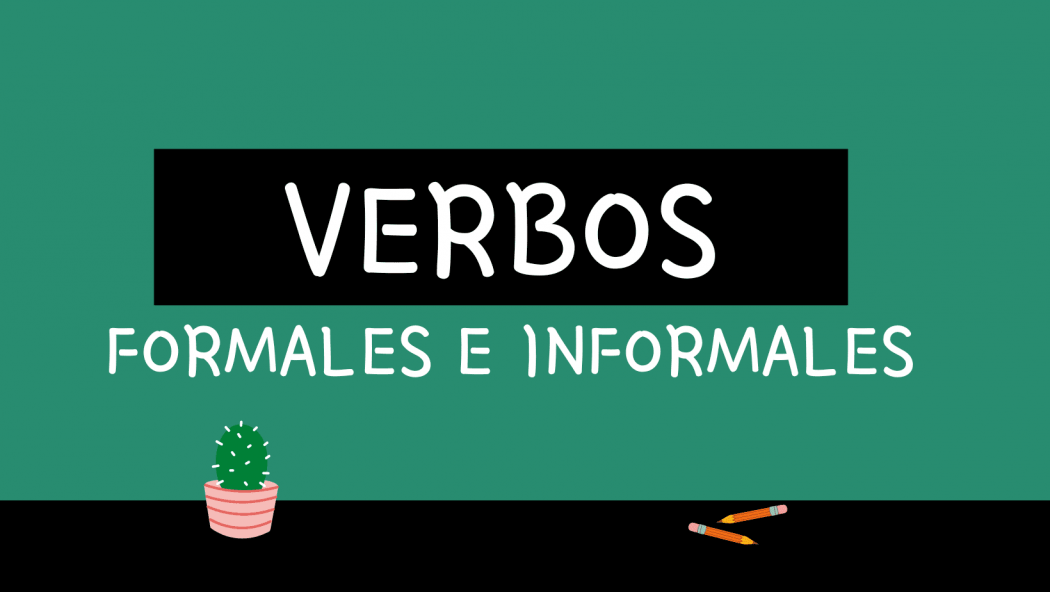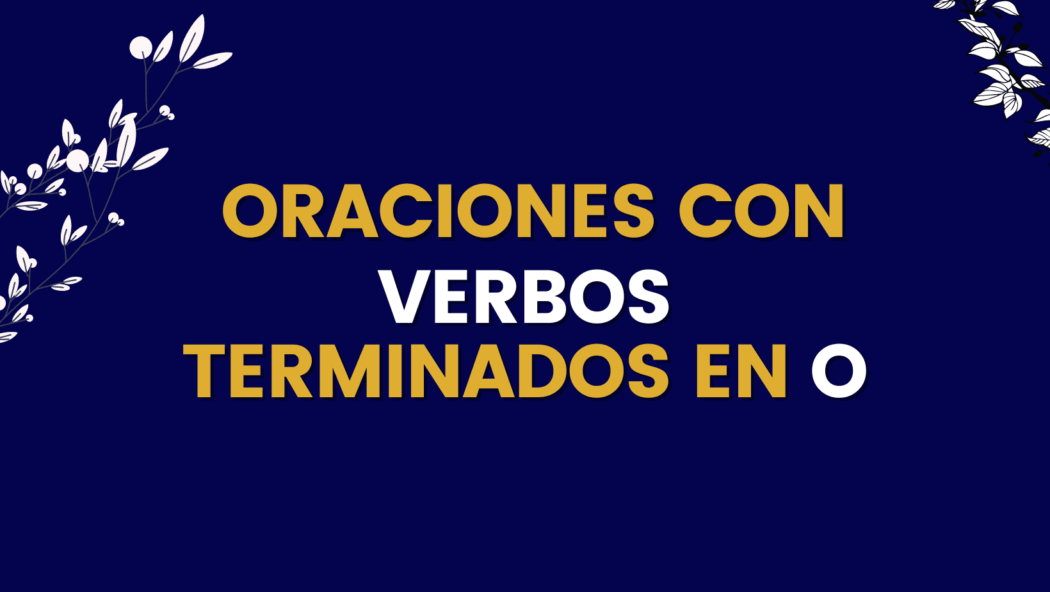Aprender los verbos más usados en inglés es clave para mejorar tu fluidez y comprensión del idioma. En este artículo, encontrarás una lista con los 50 verbos más comunes, su traducción al español y cómo se conjugan en tercera persona del singular (he/she/it).
Esto te ayudará a formar oraciones básicas con confianza y a entender mejor el inglés en conversaciones cotidianas.
¡Sigue leyendo y amplía tu vocabulario con estos verbos esenciales!
¿Cuántas palabras debo aprender en inglés?
La respuesta a esta pregunta varía de acuerdo a tus necesidades. Claramente, si estás estudiando para el TOEFL tu vocabulario de palabras debe ser más grande. No obstante, si lo tuyo es solo querer comunicarte con lo básico en el idioma, puedes hacerlo con unas 300 palabras. Según el Dr. Edward Fry con solo 300 palabras ya puedes defenderte en el inglés.
No obstante, hay otros como el profesor Webb que nos dice que para poder hablar un idioma rápidamente lo recomendable es aprender entre 800 y 1.000 palabras (aunque sólo las que aparecen con mayor frecuencia en ese idioma). Haciendo eso nos dice que ya puedes comprender hasta un 75% de ese idioma.
Por lo tanto, si lo tuyo es sólo querer aprender a hablar en inglés, la clave está en aprender sólo las palabras más frecuentes o comunes de ese idioma.
Es por esto que hoy quise traerte un listado único con los 50 verbos más usados en el inglés y como tal los más frecuentes. Para que así puedas dominar el idioma de una vez por todas.
(Recurso: BBC ¿cuántas palabras necesitas saber para comunicarte en un nuevo idioma?)
50 verbos más usados en inglés con ejemplos
A continuación veremos algunos de los 50 verbos más usados en inglés que incluyen palabras como ‘be’ (ser/estar), ‘have’ (tener), ‘go’ (ir), entre otros muchos más.
No olvidemos que los verbos son palabras que nos permiten expresar acciones y estados en inglés. Conocer los verbos más comunes es fundamental para comunicarnos de manera efectiva. Ya que estos nos ayudan a construir frases simples y a expresar nuestras necesidades, deseos y experiencias cotidianas. A medida que explores estos verbos esenciales, ampliarás tu capacidad para comunicarte en el inglés de una manera fluida y precisa.
Sin más que decir ¡comencemos!
1. To be – ser o estar
Comencemos nuestro listado con el verbo más famoso que hay en inglés, el verbo to be. Acá deberán tener especial cuidado ya que este verbo tiene 3 maneras distintas de usarse (conjugarse) en el tiempo presente. Si lo que quieres es saber más de este verbo te dejaré un artículo en donde explico todos los detalles de el: El verbo to be en inglés explicado fácilmente, piérdele el miedo
-
- I am hungry
- (Yo) tengo hambre
| I |
am |
| You – We – They |
are |
| He – She – It |
is |
2. To have – tener
Seguimos con el verbo to have. Al igual que el verbo anterior, este es uno de los más populares y que debes conocer quizás más en profundidad. Te dejaré aquí un artículo en donde podrás aprender más sobre el: ¿Cuál es la diferencia entre Have y Have Got en inglés?
-
- She has a cat
- Ella tiene un gato
| I – You – We – They |
have |
| She – He – It |
has |
3. To go – ir
- She is going to the party
- Ella irá a la fiesta
| I – You – We – They |
go |
| She – He – It |
goes |
4. To do (hacer)
Otro verbo famoso es el to do. Este verbo cumple con 2 funciones importantes para formas oraciones. 1 como auxiliar y 2 es como verbo principal. Es muy importante que conozcas bien cómo usar to do ya que es unos de los verbos que más usarás (después del to be). Sería bueno pasar por estos artículos que te dejaré acá para que así domines este idioma:
- She wants to do her homework before going out with friends
- Ella quiere hacer su tarea antes de salir con amigos
| I – You – We – They |
do |
| She – He – It |
does |
5. To get (obtener)
Llegamos al verbo comodín, como le digo yo. Y es que este verbo puede reemplazar a más de 10 verbos en inglés. Su uso es bastante común por lo que es un deber conocerlo muy bien, te dejo un artículo sobre el: Los usos, conjugación y significados del verbo to get en inglés
- I need to get some groceries from the store
- Necesito conseguir algunas compras del supermercado
| I – You – We – They |
get |
| She – He – It |
gets |
6. To say (decir)
- She says the movie is really good
- Ella dice que la película es realmente buena
| I – You – We – They |
say |
| She – He – It |
says |
7. To make (hacer)
- He makes delicious cakes for special occasions
- Él hace deliciosos pasteles para ocasiones especiales
| I – You – We – They |
make |
| She – He – It |
makes |
8. To want (querer)
- I want to go on vacation to a tropical island
- Quiero ir de vacaciones a una isla tropical
| I – You – We – They |
want |
| She – He – It |
wants |
9. To like (gustar)
- We like pizza
- Nos gusta la pizza
| I – You – We – They |
like |
| She – He – It |
likes |
10. To think (pensar)
- I think the new restaurant in town is really good
- Creo que el nuevo restaurante en la ciudad es realmente bueno
| I – You – We – They |
think |
| She – He – It |
thinks |
11. To see (ver)
- See you tomorrow
- Nos vemos mañana
| I – You – We – They |
see |
| She – He – It |
sees |
12. To eat (comer)
- They eat lunch together every day
- Ellos comen juntos todos los días
| I – You – We – They |
eat |
| She – He – It |
eats |
13. To drink (beber)
- She prefers to drink tea instead of soda
- Ella prefiere beber té en vez de bebida
| I – You – We – They |
drink |
| She – He – It |
drinks |
14. To sleep (dormir)
- Children should sleep at least eight hours every night
- Los niños deben dormir al menos ocho horas cada noche
| I – You – We – They |
sleep |
| She – He – It |
sleeps |
15. To read (leer)
- He is reading an interesting article online
- Él está leyendo un artículo interesante en línea
| I – You – We – They |
read |
| She – He – It |
reads |
16. To write (escribir)
- To write a good essay, you must organize your thoughts carefully
- Para escribir un buen ensayo, debes organizar tus ideas con cuidado
| I – You – We – They |
write |
| She – He – It |
writes |
17. To speak (hablar)
- I can speak 3 languages
- Puedo hablar 3 idiomas
| I – You – We – They |
speak |
| She – He – It |
speaks |
18. To know (saber/conocer)
| I – You – We – They |
know |
| She – He – It |
knows |
19. To take (tomar)
- I need to take my medicine before going to bed
- Necesito tomar mi medicina antes de acostarme
| I – You – We – They |
take |
| She – He – It |
takes |
20. To come (venir)
- My family is planning to come visit me next month
- Mi familia planea venir a visitarme el próximo mes
| I – You – We – They |
come |
| She – He – It |
comes |
21. To look (mirar)
- Look at the beautiful sunset over the horizon
- Mira el hermoso atardecer sobre el horizonte
| I – You – We – They |
look |
| She – He – It |
looks |
22. To use (usar)
- I need to use the computer to finish my assignment
- Necesito usar la computadora para terminar mi tarea
| I – You – We – They |
use |
| She – He – It |
uses |
23. To find (encontrar)
- We went on a hike to find the hidden waterfall
- Fuimos de excursión para encontrar la cascada escondida
| I – You – We – They |
find |
| She – He – It |
finds |
24. To give (dar)
- She decided to give her old clothes to charity
- Ella decidió dar su ropa vieja a la caridad
| I – You – We – They |
give |
| She – He – It |
gives |
25. To tell (decir/informar)
- I want to tell you a story about my recent trip
- Quiero contarte una historia sobre mi reciente viaje
| I – You – We – They |
tell |
| She – He – It |
tells |
26. To work (trabajar)
- The team is collaborating to work on the new marketing campaign
- El equipo está colaborando para trabajar en la nueva campaña de marketing
| I – You – We – They |
work |
| She – He – It |
works |
27. To call (llamar)
- I’ll call you later to discuss the details
- Te llamaré más tarde para discutir los detalles
| I – You – We – They |
call |
| She – He – It |
calls |
28. To try (intentar)
- She’ll try her best to pass the exam
- Ella intentará hacer lo mejor posible para aprobar el examen
| I – You – We – They |
try |
| She – He – It |
tries |
29. To ask (preguntar)
- Can I ask you something?
- ¿Puedo preguntarte algo?
| I – You – We – They |
ask |
| She – He – It |
asks |
30. To need (necesitar)
- We need to talk
- Necesitamos hablar
| I – You – We – They |
need |
| She – He – It |
needs |
31. To feel (sentir)
- How do you feel?
- ¿Cómo te sientes?
| I – You – We – They |
feel |
| She – He – It |
feels |
32. To become (convertirse)
- He aspires to become a successful entrepreneur
- Él aspira a convertirse en un empresario exitoso
| I – You – We – They |
become |
| She – He – It |
becomes |
33. To leave (dejar/salir)
- We need to leave early to catch the morning flight
- Necesitamos salir temprano para tomar el vuelo de la mañana
| I – You – We – They |
leave |
| She – He – It |
leaves |
34. To put (poner)
- Please put the books back on the shelf after you finish reading
- Por favor, pon los libros de nuevo en el estante después de que termines de leer
| I – You – We – They |
put |
| She – He – It |
puts |
35. To mean (significar)
- What do you mean?
- ¿A qué te refieres?
| I – You – We – They |
mean |
| She – He – It |
means |
36. To keep (mantener/guardar)
- Keep your distance
- Mantén la distancia
| I – You – We – They |
keep |
| She – He – It |
keeps |
37. To let (permitir/dejar)
- I’ll let you know if there are any changes to the schedule
- Te avisaré si hay algún cambio en el horario
| I – You – We – They |
let |
| She – He – It |
lets |
38. To begin (empezar)
- The concert will begin at 7:00 PM
- El concierto comenzará a las 7:00 PM
| I – You – We – They |
begin |
| She – He – It |
begins |
39. To seem (parecer)
- She seems very happy with her new job
- Ella parece muy feliz con su nuevo trabajo
| I – You – We – They |
seem |
| She – He – It |
seems |
40. To help (ayudar)
- I will help you
- Te ayudaré
| I – You – We – They |
help |
| She – He – It |
helps |
41. To talk (hablar)
- He loves to talk about his travels and experiences
- A él le encanta hablar sobre sus viajes y experiencias
| I – You – We – They |
talk |
| She – He – It |
talks |
42. To turn (girar)
- The driver had to turn around because of the road closure
- El conductor tuvo que dar la vuelta debido al cierre de la carretera
| I – You – We – They |
turn |
| She – He – It |
turns |
43. To start (empezar)
- We should start planning our summer vacation
- Deberíamos empezar a planificar nuestras vacaciones de verano
| I – You – We – They |
start |
| She – He – It |
starts |
44. To show (mostrar)
- The detective will show the evidence to the jury during the trial
- El detective mostrará las pruebas al jurado durante el juicio
| I – You – We – They |
show |
| She – He – It |
shows |
45. To hear (escuchar)
- I can’t hear you
- No puedo escucharte
| I – You – We – They |
hear |
| She – He – It |
hears |
46. To play (jugar/tocar)
- The kids love to play in the park
- A los niños les encanta jugar en el parque
| I – You – We – They |
play |
| She – He – It |
plays |
47. To run (correr)
- He decided to run a marathon to challenge himself
- Él decidió correr un maratón para desafiarse a sí mismo
| I – You – We – They |
run |
| She – He – It |
runs |
48. To move (mover/mudarse)
- She is planning to move to a new city for a job opportunity
- Ella está planeando mudarse a una nueva ciudad por una oportunidad de trabajo
| I – You – We – They |
move |
| She – He – It |
moves |
49. To live (vivir)
- They live in Spain
- Ellos viven en España
| I – You – We – They |
live |
| She – He – It |
lives |
50. To believe (creer)
- I believe in you
- Yo creo en ti
| I – You – We – They |
believe |
| She – He – It |
believes |
Esos fueron los 50 verbos más usados en inglés. Espero te sirvan y por sobre todo te ayuden en tu camino a dominar este hermoso idioma.

